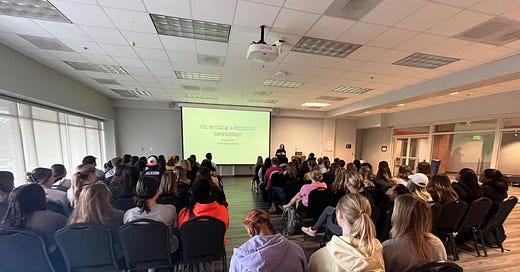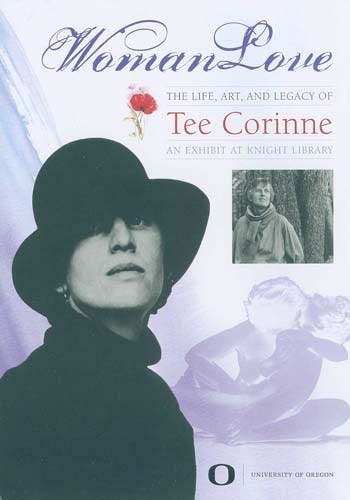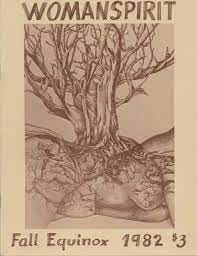Yesterday I went to Clemson to talk to their Women’s Leadership students about writing this newsletter! They were a lovely and attentive audience of over 80 people, and it was really an honor to share with them the genesis story of Hot Feminism, and to connect writing this to the work of so many feminists who have laid the groundwork for producing feminist media.
Lecture at Clemson, February 9th.
I talked with them about one of my favorite experiences in grad school, when I curated a special exhibit of the Tee Corinne papers for the Knight Library at the University of Oregon. Tee was a celebrated visual artist and writer who lived on women’s land in southern Oregon. She was also a Southerner, growing up in Florida and going to school in Louisiana. In the 1970s she moved to San Francisco, divorced her husband and joined the women’s movement, becoming a prolific artist and writer and creating things like The Cunt Coloring Book (1975) and the Yantras series, part of her project to depict desire between women in a way that disrupted the male gaze. She died much too young at 62, of liver cancer, in 2006. She donated her papers to Oregon, where Linda Long curates a number of archives dedicated to the lives and histories of queer women.
Poster for the exhibit, 2009.
My friend Ty Warren and I worked on the curation together, and going through the boxes and boxes of her papers and art, we stumbled on some amazing finds that illuminated lesbian culture of the 1970s and 80s, including letters between Tee and Alison Bechdel, who had just started writing her comic strip Dykes to Watch Out For, and documents detailing the painstaking process of establishing agreements for living and working on lesbian lands (quick take: there were a lot of meetings). In the collection too were feminist periodicals, like WomanSpirit, published quarterly on the equinoxes and solstices. Because women, and especially lesbian women, were barred from full representation in mainstream U.S. media of the time, they set out to create their own media, from short newsletters to newspapers to magazines. Women were opting out of the US patriarchal system of families and work, creating women’s land and their own networks and media.
I thought of these periodicals this summer after Roe fell, and it’s in part what inspired me to start this newsletter. I was worried about how (and if) mainstream media would cover abortion rights in South Carolina, given the history of such coverage and the state of the press in the U.S. currently (jobs in media are severely underpaid, and newsrooms are closing everywhere: more than 360 newspapers gone since 2020).
Going through some the newsletters and periodicals from this era we can see (depressingly) that we’re still making many of the same demands: equal rights for women, paid leave, access to childcare, equal representation in politics and business. Chatting with the director of the Women’s Leadership program, Diane Perpich, she told me how the program evolved at Clemson to really address these needs: students learn about the histories of patriarchal exclusion of women from leadership roles, but also theories of leadership, as a way to help students in their future careers access seats on a board, or head up a company, or run for office. The program is wildly popular, more than a 100 majors and minors, with strong financial support from donors (get in touch with Diane if you’d like to help support their work).
Senator Marsha Blackburn from Tennessee recently tweeted some anti-WGST garbage (why? I’m not sure).
We’re lucky to have a number of WGST programs in South Carolina, at Clemson, USC, Coastal Carolina, Furman, Winthrop, and of course at Presbyterian College (directed by me!). Despite Senator Blackburn’s disdain, it’s precisely these programs that are doing the work to prepare students to lead in the future. I’m a little alarmed that this week SC legislators made a request of the public universities to disclose the amount they spend on DEI work. I hope this doesn’t lead to a political push to shut down WGST programs at our public schools, or further starve them of resources. I’m thankful PC is a private institution, and that we don’t face this particular threat to our work (in fact, we just founded a robust JEDI division to ensure PC will continue to transform to meet the needs of our current and future students). So, in anticipation of Women’s History Month next month, if you can spare some money to support your local WGST program, now’s a good time. Good work is happening here.








What a great audience at Clemson! Smart students!
I love reading your writing, Emily. Always reminds me that there are strong female rebellious voices in South Carolina! The students in these WGST programs give me hope for the future.